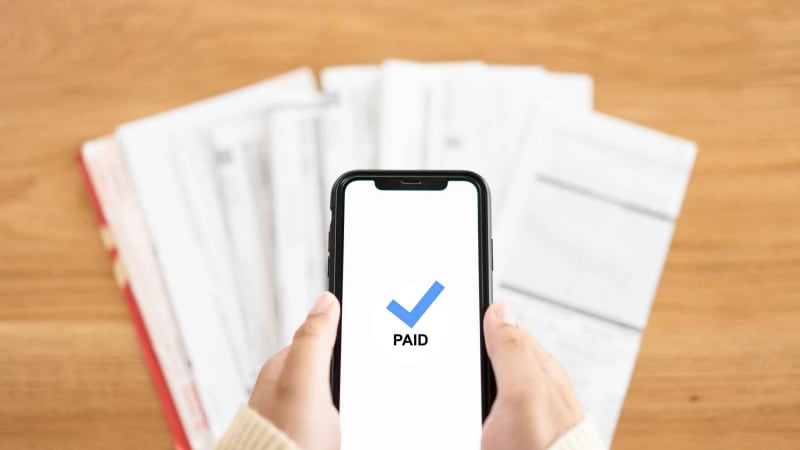9 Common credit card fees and how to avoid them

Credit cards can be very useful, but their various fees can quickly add up. Being mindful of fees, especially if you're in credit card debt, can save you headaches down the road. This article will cover nine common credit card fees and how to avoid them:
- Annual fees
- Interest/finance charges
- Late fees
- Card replacement fees
- Balance transfer fees
- Returned payment fees
- Foreign transaction fees
- Over-limit fees
- Cash advance fees
Common credit card fees
The most common fees you could encounter are:
1. Annual fees
Some lenders charge a yearly fee to use a card. Cards with annual fees often have more benefits than cards that don't. Fees can range anywhere from $50 to over $500, with some lenders waiving the fee for the first year.
How to avoid the fee: If you don't want to pay an annual fee, there are many cards that don't charge them. You could also pick a card that will waive the annual fee in year one. Compare different cards and see whether or not paying the annual fee is worth it overall.
2. Interest charges
Interest charges, also known as finance charges, are charged by creditors for carrying a balance from month to month. The amount you're charged will depend on your card's annual percentage rate (APR) and the amount of the balance you're carrying.
How to avoid the fee: You won't be charged interest if you pay your entire balance each month by your due date. You could also get a card that offers a 0% intro APR. Note that this 0% rate is only temporary. The better 0% APR promotional rates usually last anywhere from 12 to 18 months. After that, the APR will return to its regular rate. Most credit cards have variable APRs, which means that the percentage fluctuates with the market. If you don't pay your balance off by the time the promotional period ends, you'll owe interest on the remaining balance.
3. Late fees
You'll be charged a late fee if you don't make a minimum payment by your card's due date, which may vary. Many issuers calculate the fee by how often you've paid late. Some cards will waive your first late fee as a courtesy. If your payment is over 60 days late then you could be charged a penalty APR which will cause your interest rate to go higher than your regular APR. In addition, the longer your payment is overdue, the more damage your credit score may incur.
How to avoid the fee: Make sure to pay your bill on time each month. Try setting up automatic payments of at least the minimum amount so you don't miss a due date.
4. Card replacement fees
Some credit card companies will charge you a fee if you lose your card and need a new one, though many will send you a new physical card for free. If there is a fee, it is typically between $5 and $15.
How to avoid this fee: If you lose your card, ask your credit card company if they will be willing to give you a one-time replacement for free.
5. Balance transfer fees
If you transfer an outstanding balance from one card to another, you'll often be charged a balance transfer fee of 3% to 5% of your transferred balance. Transferring a balance is done to pay debt faster by moving a balance from a card with a high-interest rate to a card with a lower-interest rate. Many times, the balance transfer fee is outweighed by the amount you'll save in interest.
How to avoid this fee: Look for cards that offer a $0 introductory balance transfer fee.
6. Returned payment fees
A returned payment fee occurs when your credit card company issues a charge to your account in response to insufficient funds or if your account is unable to process a transaction for a related number of reasons.
How to avoid this fee: Always know how much money you have to ensure you can cover your credit card payments. If you notice your paying account is insufficient to cover your credit card payment, you can avoid returned payment fees by depositing money in the account by the time the payment is processed.
7. Foreign transaction fees
Some credit cards will charge you when you make a purchase in a foreign currency, either while traveling or shopping online. Foreign transaction fees are usually anywhere from 1% to 3%.
How to avoid this fee: Look for no foreign transaction fee credit cards. Travel rewards cards usually don't have foreign transaction fees. It's often worth it to look into one if you travel often.
8. Over-limit fees
If your balance exceeds your credit card limit, you could be charged an over-limit fee. Credit card lenders need your consent for over-limit transaction fees and will ask you to opt-in. If you don't opt-in, your transaction could be declined.
How to avoid this fee: You can avoid this fee by electing not to opt-in. You just won't be able to spend over your limit. Avoid spending near your credit limit, and set up alerts to notify you when you're approaching the limit.
9. Cash advance fees
A cash advance fee refers to using your credit card to take out cash. Credit cards typically charge 3% to 5% for each cash advance. In addition, you'll also be charged interest on the money you take out which will accrue immediately.
How to avoid this fee: Instead of using your card for a cash advance, use money from an emergency fund or savings account.



